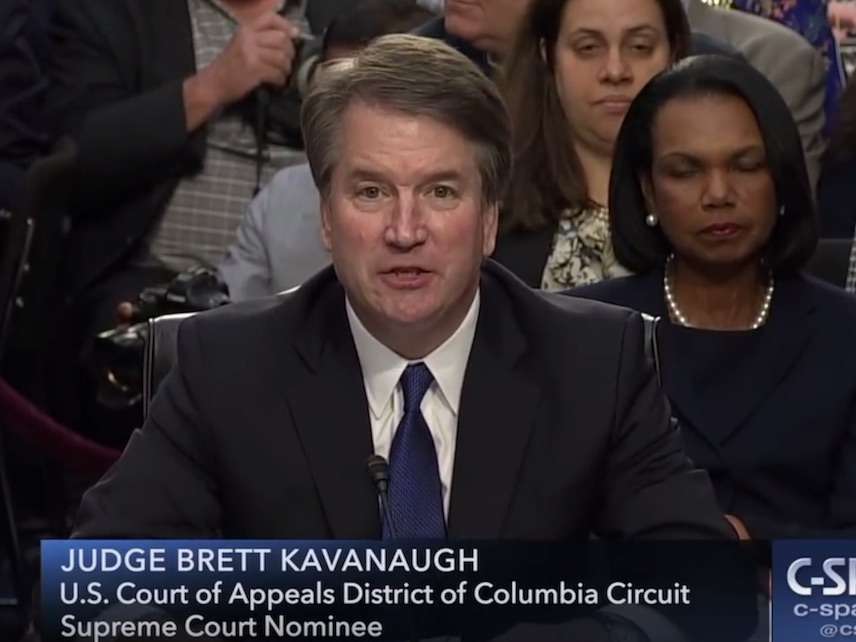Brett Kavanaugh Calls Carpenter v. United States a 'Game Changer' on 4th Amendment Law
The Supreme Court nominee talks warrantless government surveillance with Sen. Patrick Leahy.

In 2015, Judge Brett Kavanaugh wrote a concurring opinion in the case of Klayman v. Obama in which he argued that the National Security Agency's bulk metadata collection program "is entirely consistent with the Fourth Amendment." Is that still his view today? Does Kavanaugh, who is now a Supreme Court nominee, continue to believe that the Fourth Amendment suffers no violation when the federal government engages in the wholesale warrantless collection of every Americans' telephone record metadata?
During a brief but telling exchange with Sen. Patrick Leahy (D-Vt.) at his confirmation hearings last week, Kavanaugh gave the impression that his thinking on the matter has in fact changed.
"In your concurrence in Klayman v. Obama," Leahy said to Kavanaugh, you "went out of your way to say that not only is the dragnet collection of America's telephone records by the National Security Agency OK because it is not a search…even if it is a search, it is justified in order to prevent terrorism." Why?
Kavanaugh began his response by invoking precedent. "I was trying to articulate what I thought based on the precedent at the time—at the time when your information went to a third party and the government obtained the information from the third party the existing Supreme Court precedent was that your privacy interest was essentially zero," he said.
But then Kavanaugh pivoted to the present. "The opinion for the Supreme Court by Chief Justice Roberts this past spring in the Carpenter case is a game changer," he told Leahy. "I've talked repeatedly in this hearing about how technology will be one of the huge issues with the Fourth Amendment going forward, and you see Chief Justice Roberts' majority opinion in Carpenter, that alters, and really is a game changer, from the precedent on which I was writing at that time."
In his majority opinion in Carpenter v. United States, Chief Justice Roberts ruled that warrantless government tracking of a cellphone user via his cellphone location records violated the Fourth Amendment. "A person does not surrender all Fourth Amendment protection by venturing into the public sphere," Roberts wrote. "We decline to grant the state unrestricted access to a wireless carrier's database of physical location information."
Sen. Leahy then asked the SCOTUS nominee a follow-up question: "Do you think if Carpenter had been decided you would have written the concurrence you did in Klayman?"
"I don't see how I could have," Kavanaugh replied.
Leahy appeared pleased with that answer. "Thank you," he said. "I agree with that."
Leahy has some cause to be pleased. After all, it's notable that Kavanaugh did not simply describe Carpenter as a new precedent and therefore entitled to the normal level of respect under principles of stare decisis; rather, Kavanaugh called Carpenter a "game changer," suggesting that the ruling might have influenced his own thinking. If that turns out to be the case, it would be welcome news for Fourth Amendment advocates.


Show Comments (18)